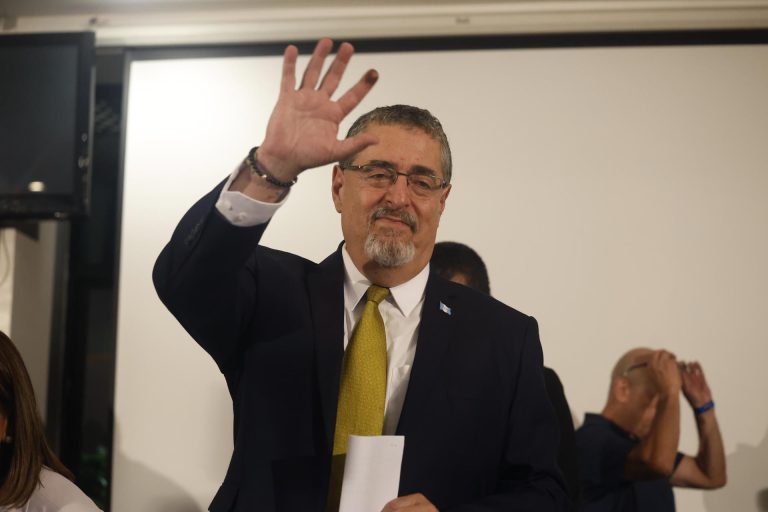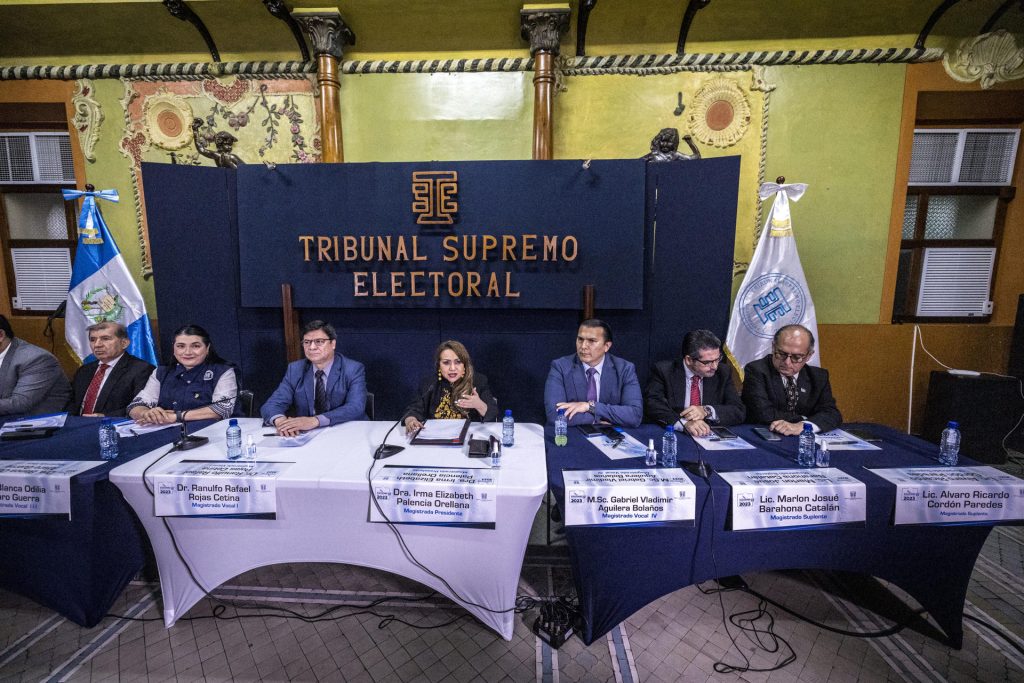31 de agosto 2023

European Concern over Lack of Academic Freedom in Nicaragua

PUBLICIDAD 1M
PUBLICIDAD 4D
PUBLICIDAD 5D
The magistrates avoided pronouncing on the suspension, so as not to advance their opinion in ahead of an appeal that Semilla has announced it will file

The president-elect of Guatemala, Bernardo Arévalo. Photo: EFE |(Confidencial)
On August 28, Guatemala’s Supreme Electoral Tribunal (TSE) certified the electoral triumph of the Movimiento Semilla [“Seed Movement”] Party in the August 20 run-off election for president. Bernardo Arevalo was officially proclaimed President of Guatemala, and his running mate Karin Herrera, Vice President. The pair will assume power on January 14, 2024.
Ironically, the Tribunal’s conclusive declaration of the results occurred just hours after a branch of the same legal entity ruled to provisionally suspend the legal status of the Semilla Party, in response to a controversial order emitted by a criminal court judge a month and a half ago.
Semilla’s suspension throws a new cloud over the possibilities for a peaceful transition to the new administration, and how solid a government Arevalo can form. In addition to winning the presidency with 60.9% of the votes – 874,000 votes more than the Unidad Nacional de Esperanza (National Unity of Hope”] Party of the outgoing president – Semilla won 23 Congressional seats. However, the party has been under siege from an Attorney General and Judicial branch accused of general corruption.
The Electoral Magistrates had announced a press conference for 1 pm on August 28, but in the end it wasn’t held until 5 pm. They assured that the provisional suspension of Semilla took them by surprise. “I didn’t see the exact time, but almost at the same moment we all saw the posts circulating on our phones,” Irma Palencia, the TSE president, told the press. “We, too, wondered if it was true or not.”
According to Palencia, the Citizens’ Registry, a lower-level branch of the TSE, didn’t advise them that it was ordering the provisional suspension of Semilla, and of the legal non-profit status of the Committee for the Formation of the Semilla Party. Between 2017 and 2018, the latter group gathered the 23,000 signatures necessary to register a party with the Supreme Electoral Tribunal.
In their press conference, the Magistrates repeatedly declined to comment on the suspension or its legal implications, in order not to advance any information, in view of the probability that the Semilla Party would be filing an appeal to Registry’s decision. In this case, the final decision would have to be made in the TSE plenary. “I do want to familiarize myself with this case, so I thank you for your understanding in that sense – that you comprehend why we cannot issue an opinion,” Palencia insisted.

Hours later, in their first public appearance after the official ratification of his victory, Arevalo and announced that at the earliest possible hour on the 29th they would file their appeal to have the party suspension annulled. The Organization of American States published a statement on the 28th calling the ruling against Semilla an“abusive interpretation of the law” (…) “without any foundation or duly proven reason.” According to the OAS, the Citizens’ Registry of Guatemala is violating the rights of the voters.
Juan Gerardo Guerrero, lawyer for the Semilla party, put it in these terms: “In the area of what we’re seeing here, that is outside the legal framework, they are willing to take any kind of action that is completely outside the Political Parties’ Electoral Law, as long as it prevents us from taking possession.”
The resolution provisionally suspending Semilla was issued by the Citizen’s Registrar, Ramiro Muñoz, and is codified as Resolution SRC-R-3207-2023. The ruling referred to an order issued by Judge Fredy Orellana three weeks after the first round of presidential elections.
The Registrar’s ruling stated: “Based on what has been previously expressed, the cited laws, and in compliance with the orders of Judge ‘A’ of Guatemala Department’s Seventh Pluripersonal Trial Court for Criminal or Drug Activity and Crimes Against the Environment, Be it Resolved: To provisionally suspend the legal registration of the Committee for the Constitution of the Political Party Movimiento Semilla, and the political party Movimiento Semilla itself.”
The July 12 court order the Registrar was referring to was issued by Judge Orellana at the request of the Guatemalan District Attorney’s Special Prosecutor against Impunity. The request for Semilla’s provisional suspension was based on the argument that the party was being investigated for the possible fabrication of signatures during its registration process.
The TSE had initially refused to carry out this lower court order, alleging that the law prevented them from outlawing a political party while an electoral process was underway. The order was apparently supposed to remain suspended until October 31, the official closing date for the 2023 elections. The Guatemalan Court of Constitutionality granted Semilla a provisional appeal, under this same argument. Later, the Guatemalan Supreme Court definitively confirmed that appeal. “Now, what we have is the definitive protection [of the Supreme Court],” insisted Andrea Reyes, one of the Semilla party’s attorneys, now elected to a seat in the Guatemala Congress. “Up until this moment, the protection hasn’t been questioned by either side. That appeal order confirms our protection until October 31st.”
Nonetheless, the Registrar’s document states: “Given that, as of the current date, the run-off election has been held, and the corresponding scrutiny of the votes has been established, it’s time to attend to the order issued by Judge “A” of Guatemala Department’s Seventh Pluripersonal Trial Court for Criminal or Drug Activity and Crimes Against the Environment.”
According to journalists present at the August 28 press conference where the TSE announced the official election results, the Registrar did not respond to multiple requests for interviews in the course of that afternoon. The official had been on vacation and during his absence, the Special Prosecutor against Impunity issued an arrest warrant against his temporary replacement, Eleonora Castillo for having refused to carry out the orders of Judge Orellana. Castillo, however, has not been detained.
According to Edgar Ortiz, Constitutional lawyer, two aspects of the Registrar’s resolution is “illegal.” First, because it ignores the legal date for culminating the electoral process. Secondly, because the electoral law has Constitutional stature and that means a lower-ranking penal judge cannot interfere in electoral matters.
*Original article from Salvadoran news site “El Faro”.
This article was originally published in Spanish in Confidencial and translated by Havana Times.
PUBLICIDAD 3M
Periódico digital de El Salvador, fundado en abril de 1998. Considerado el primer periódico latinoamericano creado exclusivamente para internet. Se especializa en periodismo de investigación con cobertura en Centroamérica. Ganador del Reconocimiento a la Excelencia del Premio Gabo 2016.
PUBLICIDAD 3D